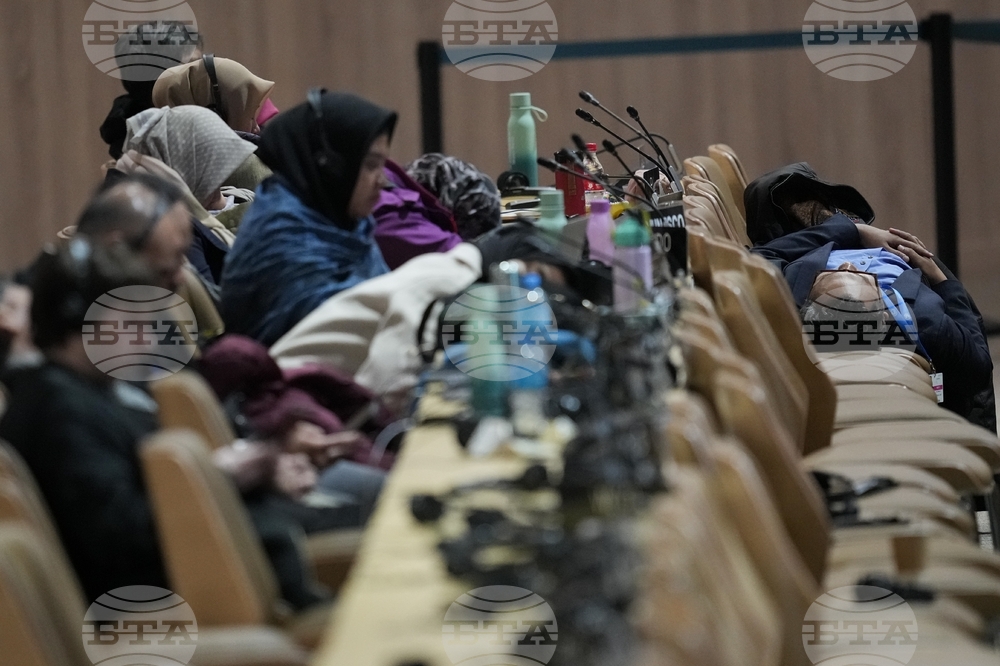site.btaCOP29 Ends on Sunday


The Conference of the Parties (COP) 29 to the United Nations Framework Convention on Climate Change (UNFCCC) concluded in the early hours of Sunday after negotiations stretched more than 30 hours beyond the formal conclusion of the conference programme.
Financing for developing countries tripled from USD 100 billion to USD 300 billion, with the goal of bringing climate finance to USD 1.3 trillion. The fund, known as the New Collective Quantified Goal (NCQG), had to be approved unanimously on every word of text by the parties. Developing countries estimated their need for financial and technical support to tackle the climate crisis at USD 1 trillion a year.
The new climate finance fund is an insurance policy for humanity, said UNFCCC Executive Secretary Simon Stiell. But as with any policy, the insurance will benefit if benefits are paid on time and in full, he noted. Keeping the promises will protect billions of lives, the diplomat stressed.
He pointed out that COP29 was a conference that propelled and continued the initiatives that were launched a year earlier at COP28 in Dubai. Triple renewables were agreed at COP28, triple climate finance at COP29 and countries agreed to work to mobilize more finance, he summarized.
However, there was no broadening of the base of countries that are mandatory donors to global climate funds, and the participation of new major economies that are still formally in the group of developing countries remains voluntary.
EU climate policy commissioner Wopke Hoekstra, who was the EU's chief negotiator, described what was achieved on climate finance as "ambitious, necessary, realistic and achievable".
Given the scale of the problem, it is good to be increasing the basis for financial contributions on a voluntary basis. All those who have the capacity to do so can do so, Hoekstra said in his closing address to the forum.
He also noted the expanding role of multilateral development banks, which will help attract more capital from private sources.
Least developed countries, which are also among the hardest hit by the climate crisis, described the agreement as insufficient. Representatives of small island states and the least developed countries walked out of the negotiating rooms in the hours before the final deal took shape.
COP29 also reached agreement on the development of bilateral and global carbon credit markets, the creation of which was enshrined in the Paris climate agreement. What was agreed should help companies and countries implement their climate plans faster and move towards halving emissions, as scientists have been calling for, the conference's final documents said.
Important texts were also agreed on transparency in climate policy reporting and adaptation, and a separate document adopted at COP29 reaffirmed gender equality in climate policy, with an action plan to be developed in this area for adoption at COP30 in Brazil in 2025.
Neither country got everything it wanted, we leave Baku with mountains of work ahead of us, we need to focus and redouble our efforts on the road to Belem, said Stiell. COP30 will take place in Belem, Brazil, in November 2025.
Countries left some decisions that were expected to be taken in Baku to Belem, and part of the frustration with COP29 is related to this. That was noted by both Stiell and UN Secretary General Antonio Guterres in his address on the end of COP29 in Baku.
Stiell highlighted new climate plans by countries to build on the Baku decisions, to be consistent with the increases in renewables agreed in Dubai, the phasing out of fossil fuels and the transformation of societies to be more resilient to climate change and transition as key expectations of the upcoming COP. Resistance to the fossil fuel phase-out agreed in Dubai last year was noticeable in Baku.
In his address, Guterres said he hoped for more ambitious results on both funding and mitigation. But the Baku agreement is a base on which to build, he added. He noted what has been achieved in the carbon market, adding that what was agreed in Baku must be fully respected, according to deadlines, and that promises must quickly translate into real money for those in need.
Hoekstra also noted that despite what has been agreed on, much work remains. Although the Dubai consensus to move away from fossil fuels was attacked, we managed to keep it and make a step forward. This is less than we like, but it is better than what we feared, the Commissioner said.
Guterres noted that the COP negotiations were complex and in times of uncertainty and geopolitical divisions. We have shown that a multilateral approach to the Paris Agreement can find a way through even the most difficult problems, the UN Secretary General said. He also stressed that the COP29 decisions are a foundation on which to build and highlighted the importance of future national climate plans that are consistent with the goal of keeping global warming to 1.5 degrees Celsius above pre-industrial levels. Guterres stressed that the G20 countries, which are the biggest carbon emitters, should be leaders in this regard.
The end of the fossil fuel era is economically inevitable and national climate plans must accelerate the transition and ensure its fairness, the UN Secretary General stressed.
/YV/
news.modal.header
news.modal.text